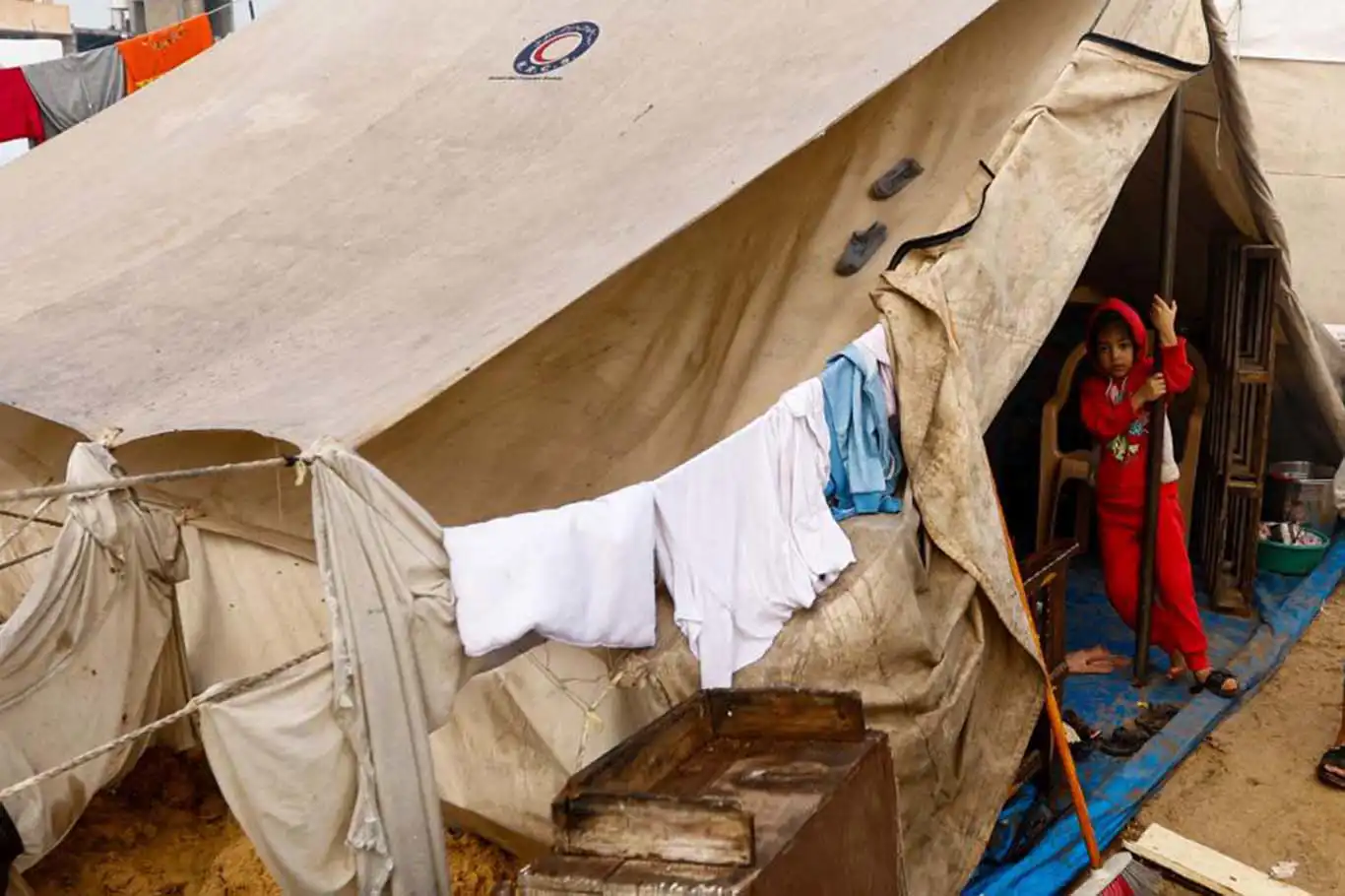Gaza’s displaced families return to ruins amid growing humanitarian crisis


The United Nations Office for the Coordination of Humanitarian Affairs (OCHA) has reported that thousands of displaced Palestinians in the Gaza Strip are beginning to move toward newly accessible areas following the recent ceasefire, even as overcrowded conditions in existing displacement sites persist.
According to OCHA, nearly 13,800 people moved toward Gaza City and the northern areas of the Strip on Sunday, while an additional 4,100 displaced individuals traveled eastward. Many families are attempting to return to their neighborhoods or find new shelter in areas that were previously cut off due to months of relentless bombardment and military operations.
Humanitarian organizations, working under OCHA’s coordination, are scaling up their response as part of a 60-day plan to expand aid delivery across the Strip. This includes reopening humanitarian corridors, re-establishing aid distribution points, and improving access to health, food, and shelter services in areas that were inaccessible during the fighting.
Expanding Food Assistance Across the Strip
Food security partners have ramped up distribution efforts, delivering food parcels to more than 15,000 households in Deir al-Balah and Khan Younis as of Sunday. Each parcel contains essential staples such as rice, lentils, beans, chickpea paste, tomato paste, and fortified sunflower oil. Aid groups are also working to increase the number of distribution points to ensure that displaced families can access food closer to where they now live.
In addition, 21 humanitarian partners delivered approximately 944,000 meals through 178 community kitchens across Gaza on Sunday alone — a significant increase of nearly 286,000 daily meals compared to three weeks ago. The day’s total included 69,000 meals from 13 kitchens in northern Gaza and 875,000 meals from 165 kitchens in the southern and central regions.
Critical Health and Reproductive Supplies Delivered
The World Health Organization (WHO) reported dispatching four pallets of vital medical supplies from its southern warehouse to hospitals and health partners across the Strip to maintain the continuity of life-saving services. The shipments included medications for diabetes and chronic diseases, as well as treatments for infections, malnutrition, and pain management.
Meanwhile, another humanitarian partner delivered reproductive health kits to southern Gaza, providing essential items for around 8,300 women. Additionally, 1,500 postpartum kits were distributed to Al-Awda Nuseirat Hospital, supporting maternity and delivery services for the coming three months.
Shelter and Winter Preparedness
Aid partners have also stepped up efforts to provide shelter to families who lost their homes during the conflict. On Sunday, 300 tents were distributed to vulnerable households in Khan Younis, alongside 14,700 blankets delivered to families across 16 displacement sites in the Al-Mawasi area.
However, humanitarian agencies have warned that the volume of shelter materials entering Gaza remains critically insufficient, particularly with winter approaching. Aid groups have called on the Israeli authorities to authorize more organizations to deliver essential shelter items, as current permissions remain limited to a few UN agencies and selected partners.
Aid Deliveries Through UN Mechanism
OCHA confirmed that the UN and its partners continue to collect aid shipments entering through the Kerem Shalom (Karem Abu Salem) and Kissufim crossings under the UN 2720 humanitarian mechanism.
Since the ceasefire took effect on 10 October, humanitarian teams have collected 10,638 metric tons of essential supplies, according to UN 2720 tracking data. Between 17 and 19 October alone, 303 trucks carrying 6,455 pallets of aid were offloaded at the two crossings. More than two-thirds of this cargo consisted of food supplies, while approximately one-fifth was composed of water, sanitation, and hygiene (WASH) materials.
Despite logistical challenges, humanitarian agencies say that operations are steadily expanding, bringing much-needed relief to Gaza’s exhausted population after a year of devastating war. Still, they emphasize that the scale of need remains overwhelming, with hundreds of thousands of Palestinians living amid destruction, facing shortages of shelter, clean water, and medical care. (ILKHA)
LEGAL WARNING: All rights of the published news, photos and videos are reserved by İlke Haber Ajansı Basın Yayın San. Trade A.Ş. Under no circumstances can all or part of the news, photos and videos be used without a written contract or subscription.
A devastating road accident occurred early Wednesday morning on Uganda’s Kampala–Gulu Highway, resulting in at least 63 fatalities and numerous injuries.
The United Nations Relief and Works Agency for Palestine Refugees (UNRWA) has reported a disturbing surge in Israeli settler violence, forced displacement, and settlement expansion across the occupied West Bank, warning that these campaigns threaten the future of Palestinian communities.
A new Israeli drone strike on the southern Lebanese town of Ain Qana has killed one civilian, marking yet another breach of the November 27, 2024, ceasefire agreement between Lebanon and the Israeli occupation regime.
A 5.5-magnitude earthquake rattled southern Ecuador’s El Oro province, with tremors felt across nearby regions, including Guayas and Loja.